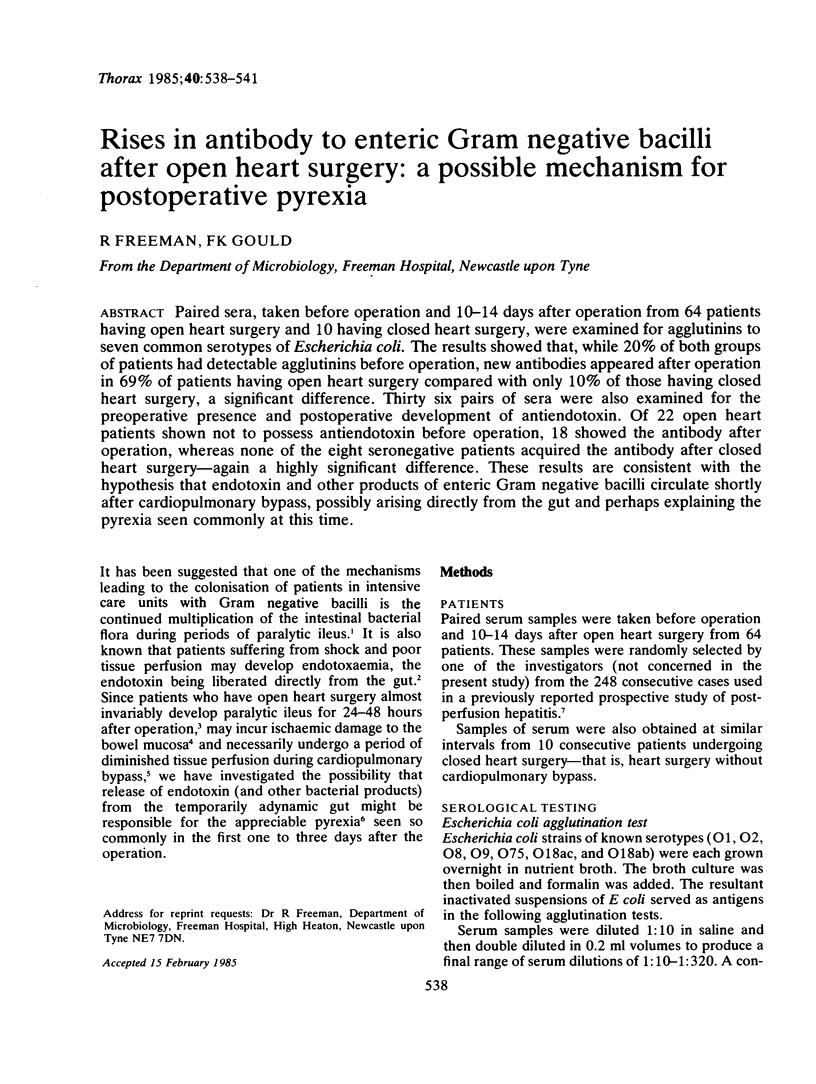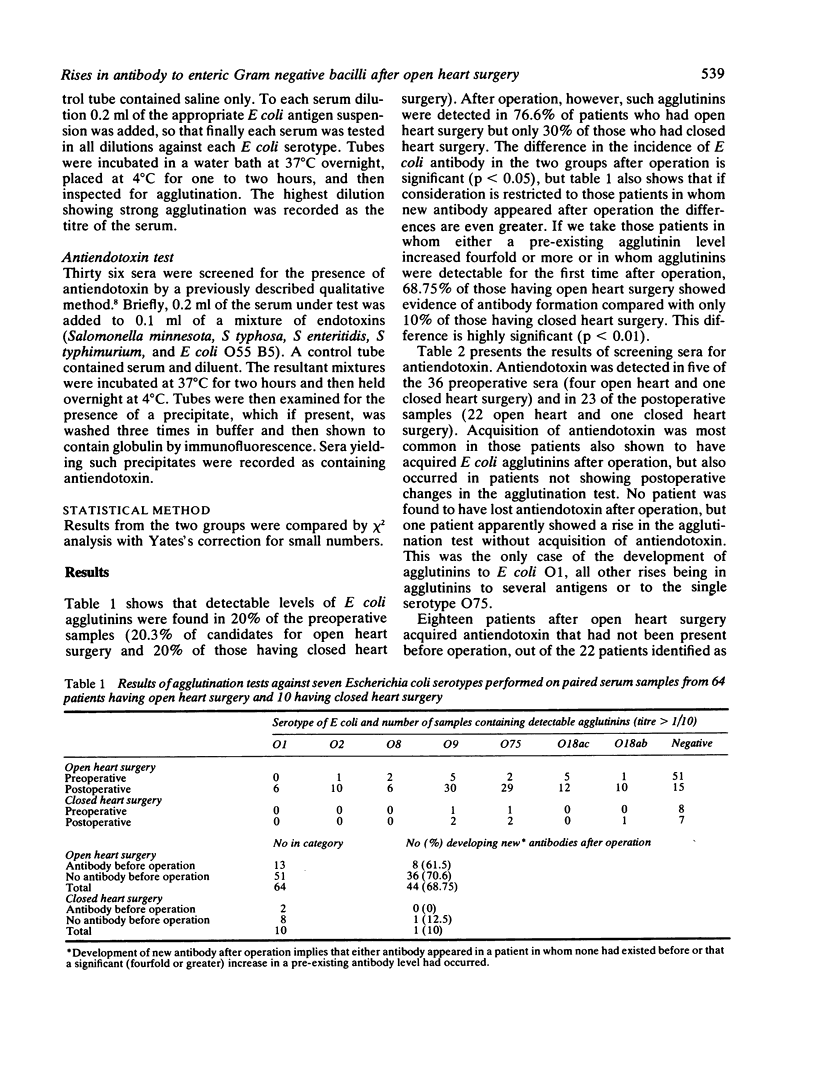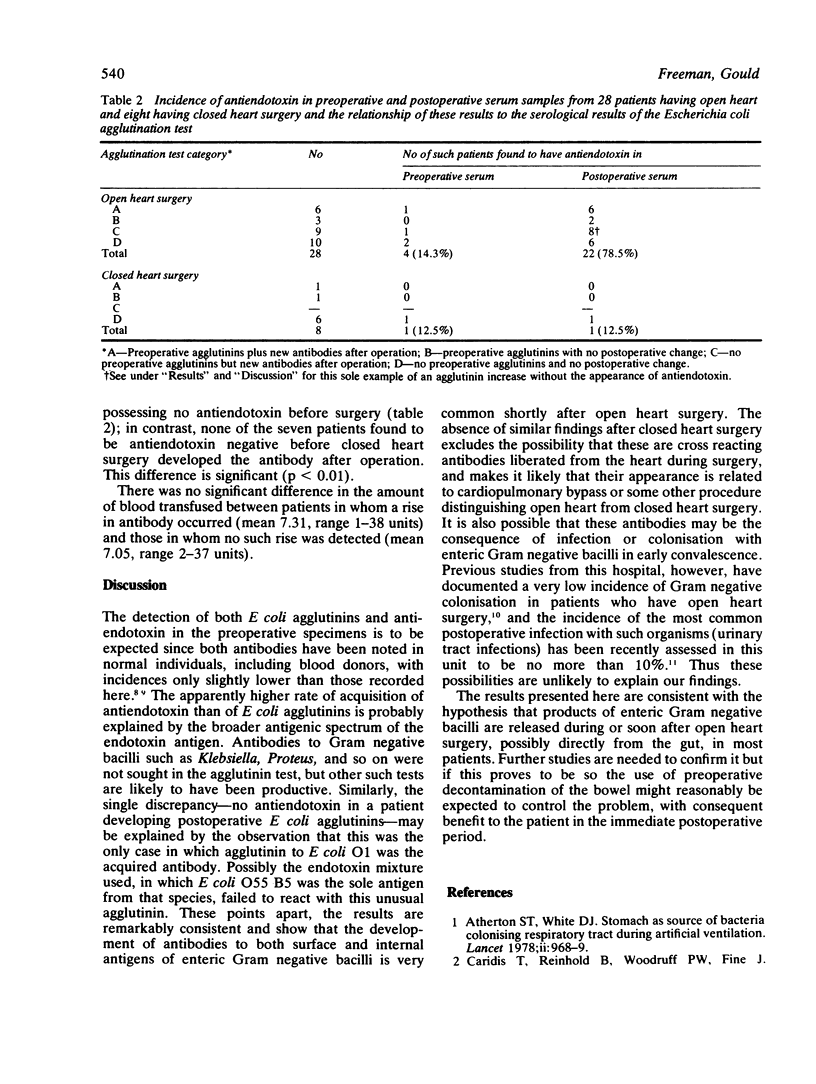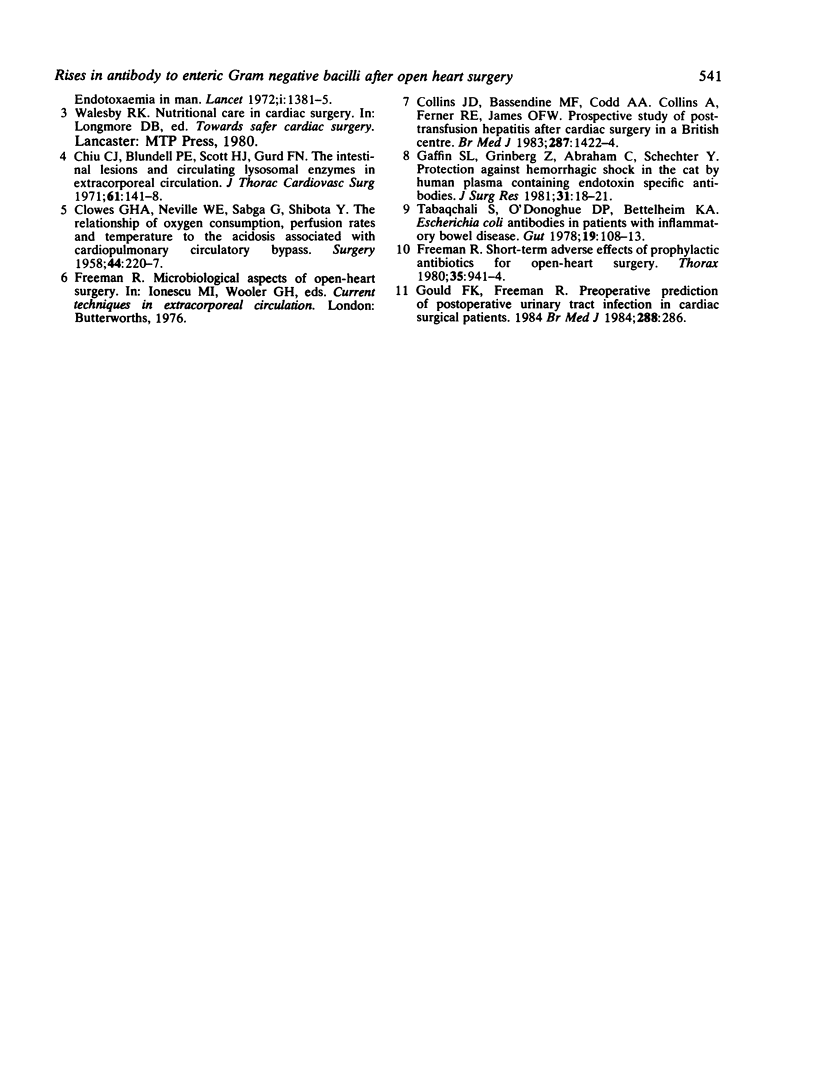Abstract
Paired sera, taken before operation and 10-14 days after operation from 64 patients having open heart surgery and 10 having closed heart surgery, were examined for agglutinins to seven common serotypes of Escherichia coli. The results showed that, while 20% of both groups of patients had detectable agglutinins before operation, new antibodies appeared after operation in 69% of patients having open heart surgery compared with only 10% of those having closed heart surgery, a significant difference. Thirty six pairs of sera were also examined for the preoperative presence and postoperative development of antiendotoxin. Of 22 open heart patients shown not to possess antiendotoxin before operation, 18 showed the antibody after operation, whereas none of the eight seronegative patients acquired the antibody after closed heart surgery-again a highly significant difference. These results are consistent with the hypothesis that endotoxin and other products of enteric Gram negative bacilli circulate shortly after cardiopulmonary bypass, possibly arising directly from the gut and perhaps explaining the pyrexia seen commonly at this time.
Full text
PDF



Selected References
These references are in PubMed. This may not be the complete list of references from this article.
- Atherton S. T., White D. J. Stomach as source of bacteria colonising respiratory tract during artificial ventilation. Lancet. 1978 Nov 4;2(8097):968–969. doi: 10.1016/s0140-6736(78)92530-8. [DOI] [PubMed] [Google Scholar]
- CLOWES G. H., Jr, NEVILLE W. E., SABGA G., SHIBOTA Y. The relationship of oxygen consumption, perfusion rate, and temperature to the acidosis associated with cardiopulmonary circulatory bypass. Surgery. 1958 Jul;44(1):220–239. [PubMed] [Google Scholar]
- Chiu C. J., Blundell P. E., Scott H. J., Gurd F. N. The intestinal lesions and circulating lysosomal enzymes in extracorporeal circulation. A clinical and experimental study. J Thorac Cardiovasc Surg. 1971 Jan;61(1):141–148. [PubMed] [Google Scholar]
- Collins J. D., Bassendine M. F., Codd A. A., Collins A., Ferner R. E., James O. F. Prospective study of post-transfusion hepatitis after cardiac surgery in a British centre. Br Med J (Clin Res Ed) 1983 Nov 12;287(6403):1422–1424. doi: 10.1136/bmj.287.6403.1422. [DOI] [PMC free article] [PubMed] [Google Scholar]
- Freeman R. Short-term adverse effects of antibiotic prophylaxis for open-heart surgery. Thorax. 1980 Dec;35(12):941–944. doi: 10.1136/thx.35.12.941. [DOI] [PMC free article] [PubMed] [Google Scholar]
- Gaffin S. L., Grinberg Z., Abraham C., Birkhan J., Shechter Y. Protection against hemorrhagic shock in the cat by human plasma containing endotoxin-specific antibodies. J Surg Res. 1981 Jul;31(1):18–21. doi: 10.1016/0022-4804(81)90025-1. [DOI] [PubMed] [Google Scholar]
- Gould F. K., Freeman R. Prediction of postoperative urinary tract infection in men undergoing cardiac surgery by preoperative measurement of urine flow. Br Med J (Clin Res Ed) 1984 Jan 28;288(6413):286–286. doi: 10.1136/bmj.288.6413.286. [DOI] [PMC free article] [PubMed] [Google Scholar]
- Tabaqchali S., O'Donoghue D. P., Bettelheim K. A. Escherichia coli antibodies in patients with inflammatory bowel disease. Gut. 1978 Feb;19(2):108–113. doi: 10.1136/gut.19.2.108. [DOI] [PMC free article] [PubMed] [Google Scholar]



